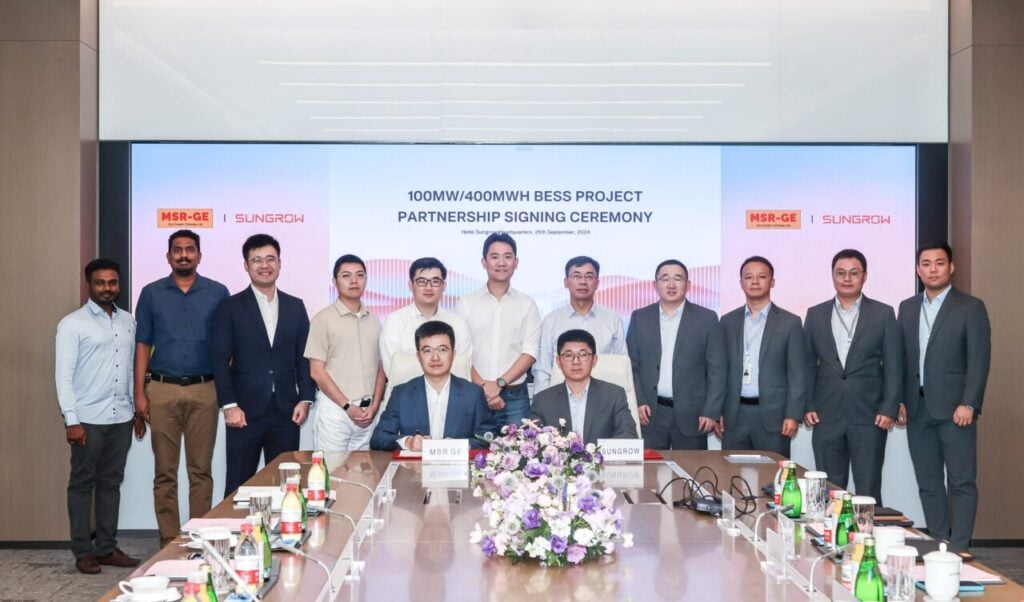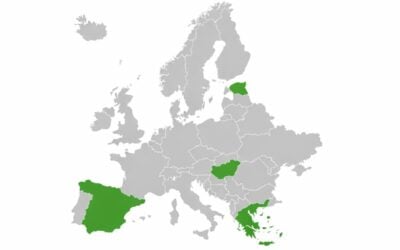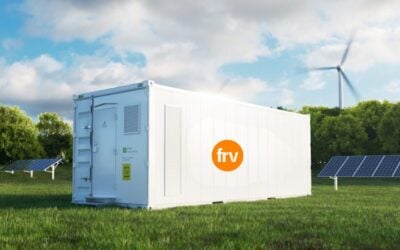
Sungrow has agreed to supply battery energy storage system (BESS) technology to a large-scale project in Malaysia, one of Southeast Asia’s biggest projects of its type.
The energy storage arm of Chinese solar PV inverter manufacturer Sungrow announced the signing of an agreement earlier this week with renewable energy company MSR-Green Energy (MSR-GE) for the 100MW/400MWh project in Sabah, a state in northern Borneo.
The project will help the island region to integrate renewable energy sources, and the two companies have already worked together in Sabah on a solar microgrid solution for a palm oil plantation.
MSR-GE was awarded the contract by Sabah Electricity Board, the local subsidiary of publicly listed power company Tenaga Nasional Berhad, the electric utility company for most of Peninsular Malaysia including Kuala Lumpur in the west and Sabah in the eastern part of the country.
Try Premium for just $1
- Full premium access for the first month at only $1
- Converts to an annual rate after 30 days unless cancelled
- Cancel anytime during the trial period
Premium Benefits
- Expert industry analysis and interviews
- Digital access to PV Tech Power journal
- Exclusive event discounts
Or get the full Premium subscription right away
Or continue reading this article for free
The renewable energy company received its Letter of Award from Sabah Electricity Board on 11 September, having been awarded the project through a competitive tender. The contract is worth RM645 million (US$156.53 million).
According to various local news reports, construction is expected to begin imminently, and the project is scheduled to go into commercial operation by 30 June 2025. Design allows for the project’s 400MWh total capacity to be later expanded to 517MWh.
Sungrow, ranked as one of the world’s biggest utility-scale BESS system integrators by research firms including S&P Global and Wood Mackenzie, will provide its battery storage technology, power conversion system (PSC) and medium voltage (MV) equipment, as well as its energy management system (EMS).
Government shift towards low-carbon energy
Most of Malaysia, including the capital Kuala Lumpur and surrounding urban regions, is not seeing big demand for energy storage systems yet, according to one developer working on battery storage projects throughout the Asia-Pacific region.
Speaking to Energy-Storage.news recently, the developer said that much of Peninsular Malaysia has a very stable electricity grid and good access to natural gas. The urgency to invest in battery storage to balance the grid and integrate variable renewable energy (VRE) is not as acute in other countries like Japan and the Philippines which are undergoing a relative boom in BESS installations.
However, the picture is different in Sabah which occupies a northern part of the island of Borneo.
Sabah Electricity Board chief executive said earlier this month that the MSR-GE project will increase the reserve margin of the Sabah grid in periods of peak demand and support the addition of new energy resources including large-scale solar, as reported by newspaper Borneo Post earlier this month.
“This project will improve the generation capacity stability of the Sabah grid, while contributing to environmental sustainability and enhancing the potential for renewable energy generation,” Mohd Yaakob Hj Jaffar was quoted as saying.
As of 2020, only about 3.9% of Malaysia’s primary energy supply came from renewable sources including solar, bioenergy and hydropower, with 42.4% from natural gas, 27.3% from crude oil and petroleum and 26.4% from coal.
However, the government has committed to carbon neutrality by 2050 and reducing greenhouse gas (GHG) emissions intensity by up to 45% by 2030. It has recently implemented policies including a National Energy Transition Roadmap (NETR), and aims to source 70% of total generation capacity from renewables by 2050, including expanding installed renewables capacity from 6GW today to 14GW.
Meanwhile, the government wants to see at least 500MW of BESS deployed by 2030 and continued growth after the end of the decade in support of those policy goals.
Last year, two Malaysian engineering companies began producing an end-to-end renewable energy storage solution, called MYBESS, from a factory near Kuala Lumpur. Citaglobal and Genetec Technology showcased the product at a March 2023 event attended by Malaysia’s Minister of International Trade and Industry, Zafrul Tengku Aziz.





